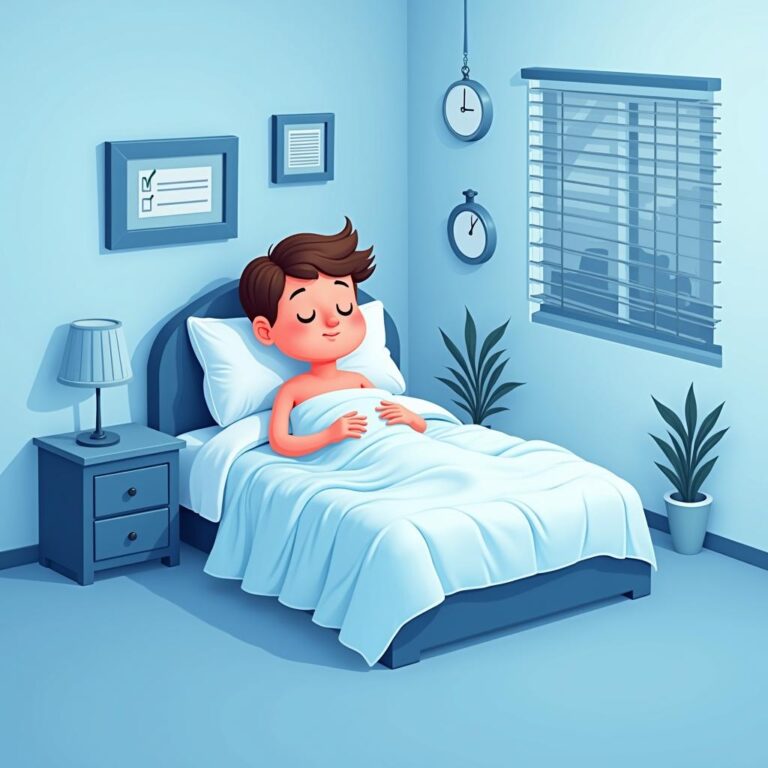In today’s fast-paced world, getting a good night’s sleep often takes a backseat to our busy lives. However, prioritizing sleep is vital for maintaining overall health and well-being. This article will explore the top habits for better sleep quality, helping you to unlock more restful nights and refreshed mornings.
Understanding Sleep Quality
Before diving into the habits, it’s essential to understand what sleep quality means. Sleep quality refers to how restorative your sleep is, impacting your mood, cognitive function, and overall health. A poor sleep quality can lead to a range of issues, including fatigue, irritability, and even long-term health problems.
Create a Consistent Sleep Schedule
One of the most effective habits for better sleep quality is to establish a consistent sleep schedule. Going to bed and waking up at the same time every day helps regulate your body’s internal clock, making it easier to fall asleep and wake up feeling refreshed. Aim for at least 7-9 hours of sleep per night, depending on your personal needs.
Build a Relaxing Bedtime Routine
Creating a calming bedtime routine can significantly improve sleep quality. This could include activities such as:
- Reading a book
- Meditation or deep-breathing exercises
- Taking a warm bath
- Practicing gentle yoga stretches
Engaging in these relaxing activities for 30-60 minutes before bed signals your body that it’s time to wind down, making it easier to transition into sleep.
Limit Exposure to Screens
The blue light emitted by screens from devices such as smartphones, tablets, and computers can interfere with your sleep quality. This light can inhibit the production of melatonin, the hormone responsible for regulating sleep. To cultivate better sleep habits, aim to reduce screen time at least one hour before bedtime. Consider substituting screen time with more relaxing activities like reading a physical book or listening to soothing music.
Optimize Your Sleep Environment
Your sleep environment plays a crucial role in determining sleep quality. Here are some tips for creating an optimal sleeping space:
- Comfortable Mattress and Pillows: Invest in a good quality mattress and pillows that suit your sleeping style.
- Room Temperature: Keep the room cool, ideally between 60-67°F (15-19°C), to promote deeper sleep.
- Reduce Noise: Use earplugs or a white noise machine to help drown out disruptive sounds.
- Darkness: Use blackout curtains or an eye mask to block out light that could disturb your sleep.
Watch Your Diet and Caffeine Intake
What you eat and drink throughout the day can significantly influence your sleep quality. Here are a few dietary considerations:
- Avoid Large Meals Before Bed: Consuming heavy meals late at night can cause discomfort and indigestion, interfering with sleep.
- Limit Caffeine: Caffeine is a stimulant that can stay in your system for hours, so try to limit its consumption, especially in the afternoon and evening.
- Alcohol Intake: While alcohol may make you feel drowsy initially, it can disrupt your sleep cycle and reduce overall sleep quality.
Instead, consider light snacks that promote sleep, such as bananas or almonds, which contain nutrients known to aid in relaxation.
Stay Active During the Day
Regular physical activity can help you fall asleep faster and enjoy deeper sleep. Aim for at least 30 minutes of moderate exercise most days of the week. However, be mindful of the timing: exercising too close to bedtime may have the opposite effect and make it difficult to wind down.
Manage Stress and Anxiety
Chronic stress and anxiety can severely impact sleep quality. Developing effective stress-management techniques is essential for achieving better sleep habits. Here are a few strategies to consider:
- Mindfulness Meditation: Practicing mindfulness can help clear your mind before bedtime, reducing worry.
- Journaling: Writing down your thoughts and worries can help to release them so you can relax.
- Progressive Muscle Relaxation: Tensing and then relaxing muscle groups can reduce physical tension and promote relaxation.
Limit Naps
While power naps can provide a boost in energy, excessive daytime napping can negatively affect nighttime sleep quality. If you find yourself needing a nap, try to limit it to 20-30 minutes and avoid napping late in the afternoon.
Seek Natural Sleep Aids
If you continue to struggle with sleep despite practicing these habits, consider exploring natural sleep aids. Herbal teas such as chamomile or valerian root can promote relaxation and improve your pre-sleep routine. However, always consult a healthcare professional before introducing new supplements or herbs into your regimen.
Know When to Seek Professional Help
If you’ve tried various habits for better sleep and still experience persistent insomnia or sleep disturbances, it may be time to seek professional help. A sleep specialist can provide tailored advice, identify any underlying sleep disorders, and recommend appropriate treatment options.
Conclusion
Adopting better sleep habits is essential for improving sleep quality and overall well-being. By establishing a consistent sleep schedule, creating a relaxing bedtime routine, optimizing your sleep environment, and managing stress, you can significantly enhance your sleep experience. Remember, quality sleep isn’t merely a luxury; it’s a vital part of a healthy lifestyle. Start incorporating these habits today, and pave the way for more restful nights and energized days.







